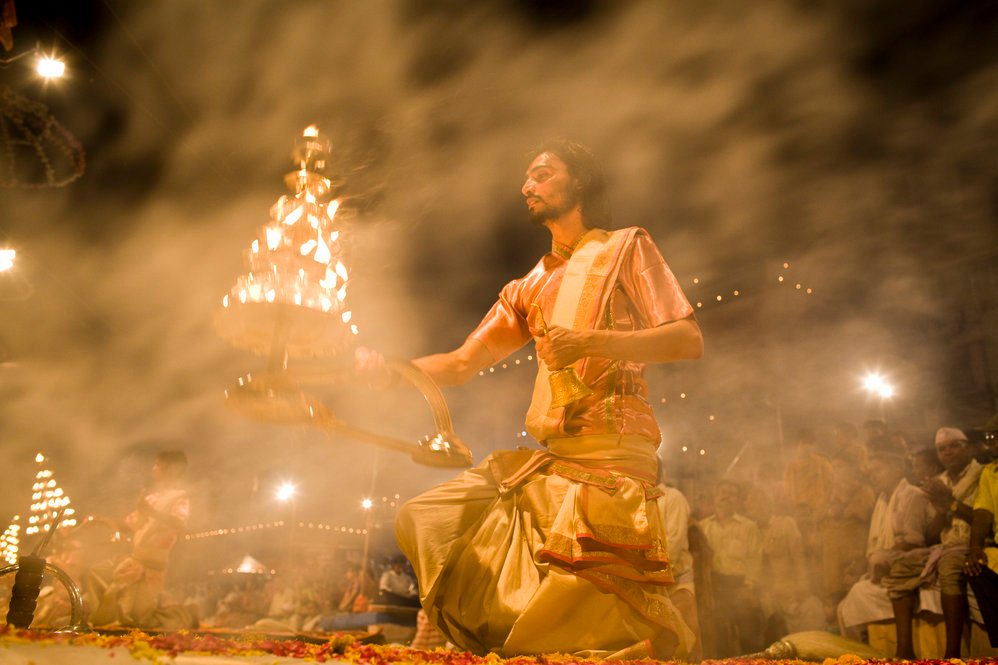Hinduism, a profound and ancient religion, is replete with rituals and ceremonies that provide a spiritual connection to the divine. Among these rituals, ‘pooja’ holds a special place. Pooja, often called ‘puja,’ is a form of worship, a devotional act that seeks to establish a direct link with the gods and goddesses of Hinduism.
Ashlesha Bali Pooja is a significant Hindu ritual performed at the Kukke Subramanya Temple in Karnataka, India. Devotees seek relief from sarpa dosha (snake-related afflictions) and family issues. During the ritual, offerings are made to appease Lord Subramanya, known as the Snake God, to gain his blessings and protection.
In this article, we will explore some of the most popular Hindu pujas and delve into their significance, shedding light on the rich tapestry of beliefs and practices that define Hindu spirituality.
The Essence of Pooja
Pooja, at its core, is an act of devotion, reverence, and gratitude. It is a way for Hindus to express their faith, connect with the divine, and seek blessings for various aspects of life. Pujas vary in complexity, from simple daily rituals performed at home to elaborate ceremonies conducted in temples and sacred places. The significance of each puja lies in the deity being worshiped and the intention behind the worshiper’s devotion.
Ganesha Chaturthi Pooja
Significance: Ganesha Chaturthi, dedicated to Lord Ganesha, is one of the most beloved festivals in Hinduism. Lord Ganesha is revered as the remover of obstacles and the god of wisdom and beginnings. The Ganesha Chaturthi puja is performed to seek his blessings for a successful and obstacle-free life.
How to Prepare: To perform this pooja, one needs an idol or image of Lord Ganesha, preferably made of clay. Offerings like modak (a sweet treat), durva grass, flowers, and incense are essential. Devotees chant specific Ganesha mantras during the pooja, such as the Ganesh Gayatri mantra.
Lakshmi Puja During Diwali
Significance: Diwali, the festival of lights, includes a special Lakshmi puja dedicated to Goddess Lakshmi, the goddess of wealth and prosperity. The Lakshmi puja is performed to invite wealth, happiness, and well-being into one’s home.
How to Prepare: Before the puja, thorough cleaning and decorating of the home are customary. A clay or silver idol of Goddess Lakshmi is placed on a sacred platform. Devotees light oil lamps, offer sweets, fruits, and coins, and recite Lakshmi mantras. The Lakshmi Ashtakam and Lakshmi Sahasranama are often chanted during this puja.
Sarpa Samskara Pooja benefits include relief from health issues, family disputes, and financial problems caused by these doshas. Devotees seek blessings for overall well-being and harmony in their lives through this ritual.
Satyanarayan Katha
Significance: The Satyanarayan Katha is a narrative ritual dedicated to Lord Vishnu in his form as Satyanarayan. This pooja is performed to seek blessings for good fortune, happiness, and the fulfillment of wishes. It is commonly conducted during auspicious occasions or after the fulfillment of vows.
How to Prepare: The Satyanarayan Katha typically involves storytelling. Devotees gather to listen to or recite the story of Lord Satyanarayan’s divine exploits. A puja altar with offerings like fruits, flowers, sweets, and coconuts is arranged. A priest or a knowledgeable family member conducts the ceremony, and attendees participate with devotion.
Navaratri Pooja
Significance: Navaratri is a nine-night festival dedicated to Goddess Durga and her various forms. The Navaratri puja is performed to celebrate the divine feminine energy and seek her blessings for strength, courage, and protection.
How to Prepare: Each night of Navaratri, a different form of Goddess Durga is worshiped. Devotees create a ‘Golu’ or display of dolls and idols depicting various deities. Special prayers, fasting, and chanting of Durga mantras are observed. The Durga Saptashati or Devi Mahatmyam is often recited during this period.
Maha Shivaratri Abhishekam
Significance: Maha Shivaratri, the Great Night of Lord Shiva, is observed with great devotion by Shiva’s devotees. The Maha Shivaratri abhishekam involves the ritual bathing of the Shiva Lingam with various sacred substances, including milk, honey, and water, to seek Lord Shiva’s blessings for spiritual growth and purification.
How to Prepare: Devotees often visit Shiva temples on Maha Shivaratri. The preparation includes fasting, staying awake through the night, and participating in the abhishekam ceremony. Chanting the Maha Mrityunjaya Mantra is customary during this time.
Saraswati Puja
Significance: Saraswati Puja, dedicated to Goddess Saraswati, is a celebration of knowledge, art, and learning. It is especially significant for students seeking wisdom and excellence in their studies.
How to Prepare: A Saraswati idol or image is adorned with white clothes and flowers. Offerings of books, musical instruments, and pencils symbolize the pursuit of knowledge. Devotees recite Saraswati Vandana or other Saraswati mantras to seek blessings for wisdom and creativity.
Epanditjee for Online Pandit jee booking
Epanditjee offers a convenient solution for booking experienced and knowledgeable pandits (priests) to perform various Hindu poojas and rituals.
Whether you’re seeking to conduct a Ganesha Chaturthi Pooja, Lakshmi Puja, Satyanarayan Katha, Navaratri Pooja, Maha Shivaratri Abhishekam, Saraswati Puja, or any other sacred ceremony, you can easily find and book a pandit through Epanditjee.
Ensure the seamless and authentic performance of these rituals with the expertise of trusted pandits, enhancing the spiritual significance of your events.
Conclusion
Hindu poojas are not just rituals; they are profound expressions of devotion and spirituality. Each pooja is an opportunity for devotees to connect with the divine, express gratitude, and seek blessings for various aspects of life. The significance of these poojas lies in the deity being worshiped and the intentions of the worshiper.
As you engage in these rituals, remember that the essence of puja is your devotion and sincerity. Approach them with an open heart, and you will find that they can be transformative experiences on your spiritual journey.
In conclusion, Hindu pujas are a reflection of the deep spiritual heritage of Hinduism, offering devotees a way to connect with the divine and infuse their lives with blessings and grace. Through these rituals, Hindus find a profound sense of purpose and connection to the divine forces that shape their lives. sprunki horror Endless Fun Awaits!



